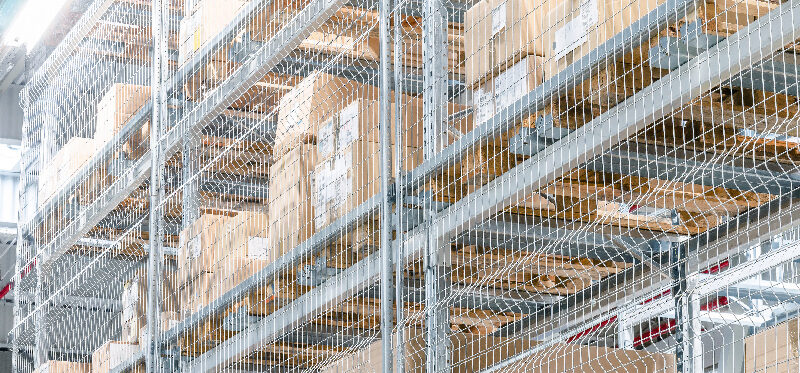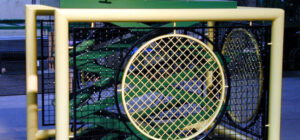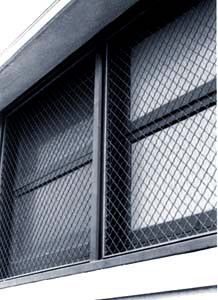
The Ultimate Guide to Choosing the Right Wire Mesh Product
Introduction
Wire mesh is an essential material in various industries, known for its versatility and durability. Whether used in construction, manufacturing, or filtration, wire mesh plays a critical role in enhancing the strength, safety, and functionality of many products and structures. Among the various options available, welded wire mesh material stands out for its strength and reliability. This guide by California Wire Products aims to help you navigate the complex world of wire mesh, enabling you to choose the right product for your specific needs.Section 1: Understanding Wire Mesh
What is Wire Mesh?
Wire mesh, often referred to as wire cloth or wire fabric, is a grid-like structure made from interlacing or welding metal wires. The design allows for varying degrees of permeability, strength, and flexibility, depending on the material and manufacturing process used.Common Materials Used in Wire Mesh
Wire mesh is typically made from a range of materials, each offering unique properties:- Stainless Steel: Known for its corrosion resistance and strength, making it ideal for harsh environments. Stainless steel wire mesh material is particularly favored in environments requiring high durability.
- Galvanized Steel: Coated with a layer of zinc to enhance corrosion resistance, often used in outdoor applications.
- Copper: Offers excellent conductivity and corrosion resistance, commonly used in electrical and filtration applications.
Manufacturing Processes: Woven vs. Welded Wire Mesh
Wire mesh can be manufactured using two primary methods:- Woven Wire Mesh: Created by weaving metal wires over and under each other in a specific pattern. This method allows for flexibility and varying degrees of openness.
- Welded Wire Mesh: Involves welding the intersection points of metal wires, creating a rigid and sturdy structure. This method, often used by wire mesh manufacturers, is particularly suitable for applications requiring heavy duty wire mesh.
Section 2: Types of Wire Mesh
Woven Wire Mesh
- Characteristics: Flexible, customizable in terms of mesh size and wire diameter.
- Common Uses: Filtration, screening, and protective barriers.
- Advantages: High flexibility, wide range of applications.
- Disadvantages: Less rigid compared to welded wire mesh.
Welded Wire Mesh
- Characteristics: Strong, rigid, with a uniform structure.
- Common Uses: Fencing, reinforcement in concrete, and partitions.
- Advantages: High strength and durability.
- Disadvantages: Less flexible, more challenging to work with in certain applications.
Expanded Metal Mesh
- Characteristics: Created by cutting and stretching metal sheets to form a diamond-shaped pattern.
- Common Uses: Walkways, grating, and ventilation.
- Advantages: Lightweight yet strong, allows for air and light passage.
- Disadvantages: Limited flexibility, can be sharp at edges.
Perforated Metal Mesh
- Characteristics: Metal sheets with punched holes in various patterns.
- Common Uses: Soundproofing, ventilation, and decorative panels.
- Advantages: Customizable hole patterns, excellent for airflow and noise reduction.
- Disadvantages: Limited structural strength compared to woven or welded mesh.
Crimped Wire Mesh
- Characteristics: Wires are pre-crimped before being woven, offering a tight, secure structure.
- Common Uses: Mining, screening, and architectural applications.
- Advantages: High rigidity and strength, suitable for heavy-duty applications.
- Disadvantages: Less flexible, more expensive to produce.
Section 3: Factors to Consider When Choosing Wire Mesh
Material
- Corrosion Resistance: Choose materials like stainless steel or galvanized steel for environments prone to moisture and corrosive elements.
- Strength and Durability: Consider the material’s tensile strength, especially for load-bearing applications, where wire mesh heavy duty products are necessary.
- Conductivity: Copper and other conductive materials are ideal for electrical and thermal applications.
Mesh Size and Opening
- Determining the Appropriate Mesh Size: The mesh size should align with the specific requirements of your application, such as filtration or security.
- Understanding Aperture Size: The aperture size impacts the flow of materials or air through the mesh, crucial for filtration and screening.
Wire Diameter
- Impact on Strength and Flexibility: Thicker wires offer more strength but less flexibility, while thinner wires are more flexible but may lack the necessary strength for certain applications.
Surface Treatment
- Galvanization: Provides a protective zinc coating to prevent rusting, ideal for outdoor use.
- PVC Coating: Adds a layer of protection and can improve the mesh’s aesthetic appeal.
- Other Treatments: Consider additional treatments like anodizing or powder coating for enhanced performance and longevity.
Section 4: Applications of Wire Mesh
Industrial Applications
- Filtration: Wire mesh is widely used in filtering liquids and gases, especially in industries like oil, gas, and pharmaceuticals.
- Separation: Used to separate different materials in mining and processing industries.
- Reinforcement: Adds strength and stability to structures, particularly in concrete applications.
Construction Applications
- Concrete Reinforcement: Wire mesh is embedded in concrete to increase its tensile strength and prevent cracking.
- Fencing and Barriers: Offers security and protection in residential, commercial, and industrial settings.
- Architectural Uses: Wire mesh can be used for aesthetic purposes, such as in facades, balustrades, and ceilings.
Section 5: How to Select the Right Wire Mesh Product
Identify Your Needs
- Specific Application Requirements: Determine the primary function of the wire mesh, whether it’s for filtration, reinforcement, or another purpose.
- Environmental Conditions: Consider factors like exposure to moisture, chemicals, and extreme temperatures.
Consult with Experts
- Importance of Professional Advice: Engage with industry professionals to ensure you select the most suitable wire mesh for your application. California Wire Products, a trusted name among wire mesh manufacturers, can provide valuable insights and high-quality products tailored to your needs.
- Where to Find Reliable Suppliers and Manufacturers: Look for reputable companies with a track record of providing high-quality wire mesh products.
Budget Considerations
- Balancing Cost with Quality and Durability: While it’s essential to stay within budget, ensure that the wire mesh you choose meets the necessary quality and durability standards for your application.
Section 6: Maintenance and Care of Wire Mesh
Regular Inspections
- Checking for Wear and Tear: Regularly inspect your wire mesh for signs of damage, especially in high-stress applications.
- Signs of Corrosion: Look out for rust or discoloration, particularly in outdoor or industrial environments.
Cleaning and Upkeep
- Recommended Cleaning Methods: Use appropriate cleaning agents and techniques based on the material of the wire mesh. Stainless steel, for example, may require specialized cleaners to maintain its shine and prevent corrosion.
Repair and Replacement
- When to Repair vs. When to Replace: Minor damages can often be repaired, but extensive wear or corrosion may require complete replacement to maintain functionality and safety.
Conclusion
Choosing the right welded wire mesh material is crucial for ensuring the success and longevity of your project. By understanding the different types of wire mesh, the factors that influence your choice, and how to maintain your mesh over time, you can make informed decisions that meet your specific needs. Whether for industrial, construction, or architectural applications, selecting the appropriate wire mesh from California Wire Products will enhance performance, safety, and durability in your projects. Call us at (951) 371-7730 for more information.FAQs
1. Can wire mesh be customized for specific projects? A: Yes, wire mesh can be customized in terms of mesh size, wire diameter, and material to meet the specific requirements of your project. Customization allows you to tailor the mesh to suit unique applications, whether for filtration, reinforcement, or decorative purposes. 2. How often should wire mesh be inspected and maintained? A: Wire mesh should be inspected regularly, especially in high-stress or outdoor environments. Depending on the material and application, maintenance may include cleaning, checking for signs of corrosion, and assessing any wear and tear to ensure optimal performance. 3. What factors affect the cost of wire mesh products? A: The cost of wire mesh products is influenced by several factors, including the material used, mesh size, wire diameter, and any additional surface treatments like galvanization or PVC coating. Balancing these factors with your budget is key to selecting the right product.GET IN TOUCH
Contact us today to place your wire mesh order!


